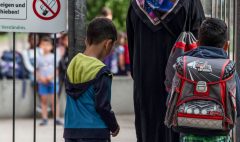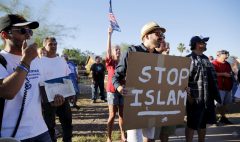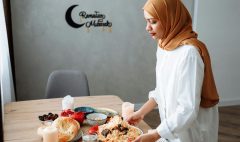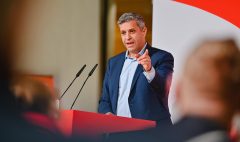During Ramadan, bottled water helps local Muslims bridge religious divide
June 13, 2017 2024-03-18 1:50During Ramadan, bottled water helps local Muslims bridge religious divide
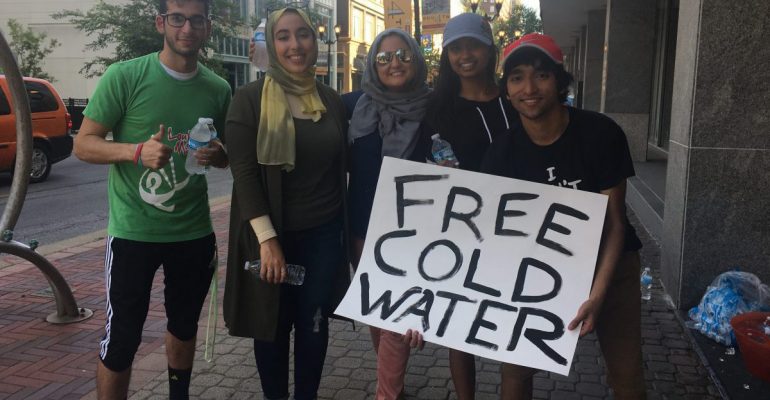
During Ramadan, bottled water helps local Muslims bridge religious divide
As Muslims in Louisville and around the globe are celebrating the holy month of Ramadan, some young Muslims in the city are taking this time to educate their fellow citizens about Islam. Many in the group are students or recent graduates, and on this 90 degree-day, they’re working with Muslim Americans for Compassion to spread goodwill and counteract Islamophobia.
“What this gesture does, it’s to promote friendliness, to be honest,” says Zeeshan Bhatti, 22. Bhatti works for Merrill Lynch, and is one of the people handing out free bottles of water. “Zohaib came up with a brilliant idea to help promote the idea of solidarity and all this Islamophobia in a really casual way,” says Bhatti. “It’s just hey let’s be nice during Ramadan — which is when we fast — let’s hand out water.”
Globally, the 1.8 billion Muslims in the world make up nearly a quarter of the world’s population, according to the Pew Research Center. Christianity is still the world’s largest religion, but Islam is the world’s fastest-growing religion, says the Pew Research Center. In the Unites States, 49 percent of Americans believe that at least “some” Muslims living in the country are anti-American. That’s larger than the share of people who say “just a few” or “none” are anti-American, according to Pew. More than three million Muslims call the U.S. home.
“I’m not saying that everybody’s out to get Muslims and stuff like that, but you do have this Islamophobia and you do have people who are unaware of the religion and what it actually says,” Zohaib Qureshi says. So while handing out water, the volunteers are hoping to change the way some view Muslims in the community. Bhatti says in today’s divisive political climate, there are lots of misconceptions about his religion.
“Honestly, as a Muslim, I don’t blame them,” he says. “They have this filtered media, bias media, of what they’re observing and seeing of only explosions in Afghanistan, explosions in Syria, explosions in Iraq, explosions in Yemen. How can they not be afraid? You know what I mean? So what this is, is a friendly reminder like, ‘hey guys we’re not like that.’” According to Pew, 42 percent of Americans say they are very concerned about Islamic extremism. And while it’s difficult to bear the burden of being stereotyped while having to explain why those stereotypes are not accurate, Bhatti sees it as an opening…He says that can only happen after an initial interaction.
Source: WFPL News


